After a Green Beret’s Suicide, His Wife Hopes Revised Army Program Will Reach Others
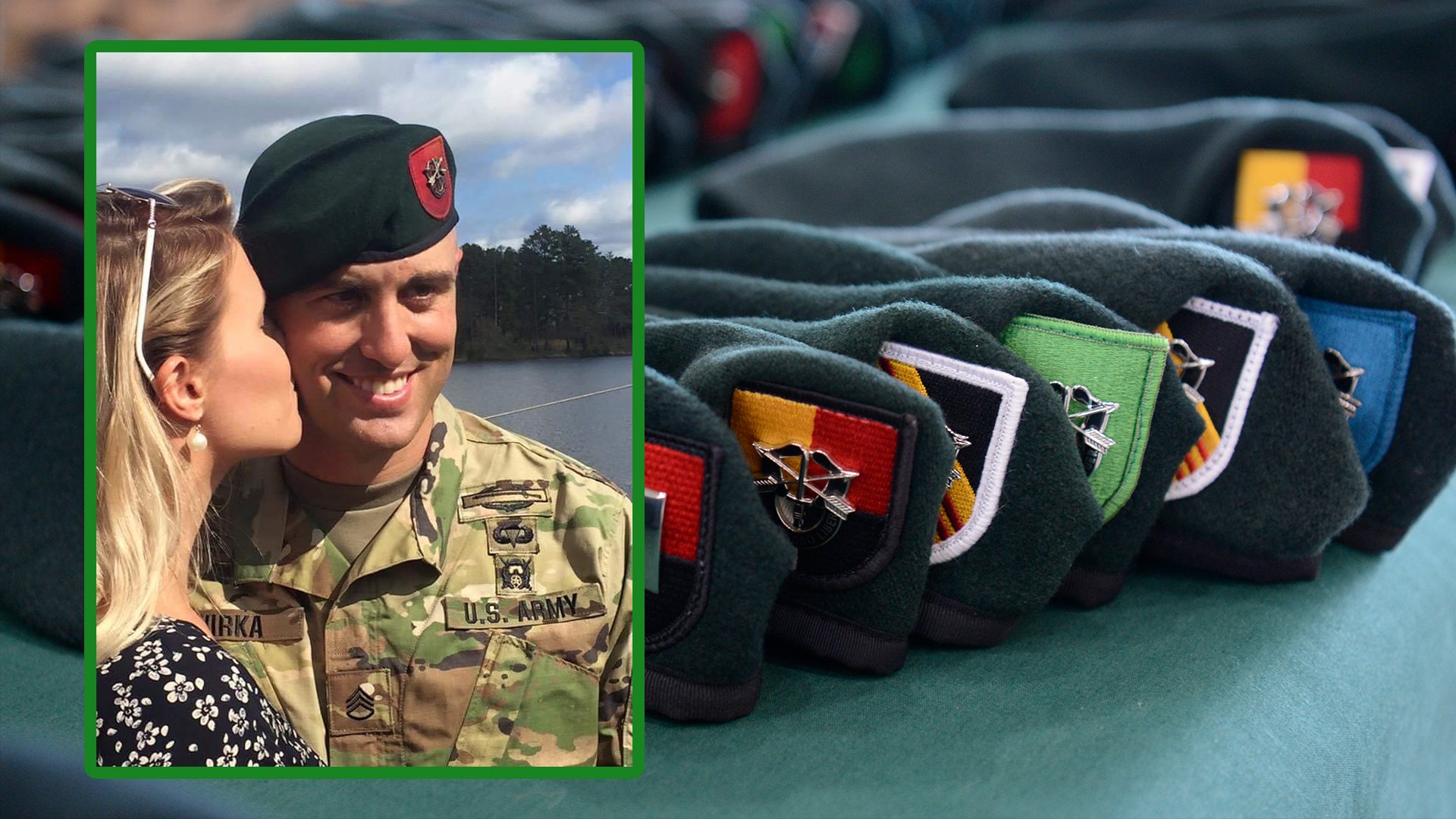
Warrant Officer 1 John Michael Wirka Jr. with his wife, Erica. Wirka died in January 2021. Erica is hoping that a new program in Special Operations Command will help other Special Forces soldiers seek help if they are in crisis. Inset image courtesy of Erica Wirka, US Army photo by K. Kassens.
Erica Wirka didn’t think her husband’s short trip to El Salvador would be anything out of the ordinary. When Warrant Officer 1 John Michael Wirka Jr. left that January morning, their goodbye didn’t seem unusual or peculiar. The couple had been through several short trips like this one, a pre-deployment site survey.
“On Jan. 10, 2021, I said goodbye to my husband that morning — for the last time,” Wirka said.
Four days later, Wirka was greeted just past 7 p.m. by an officer and chaplain at her front door. Her husband, who went by “Johnny,” had killed himself via a gunshot.
When Johnny finally returned home, it was in a flag-draped casket.
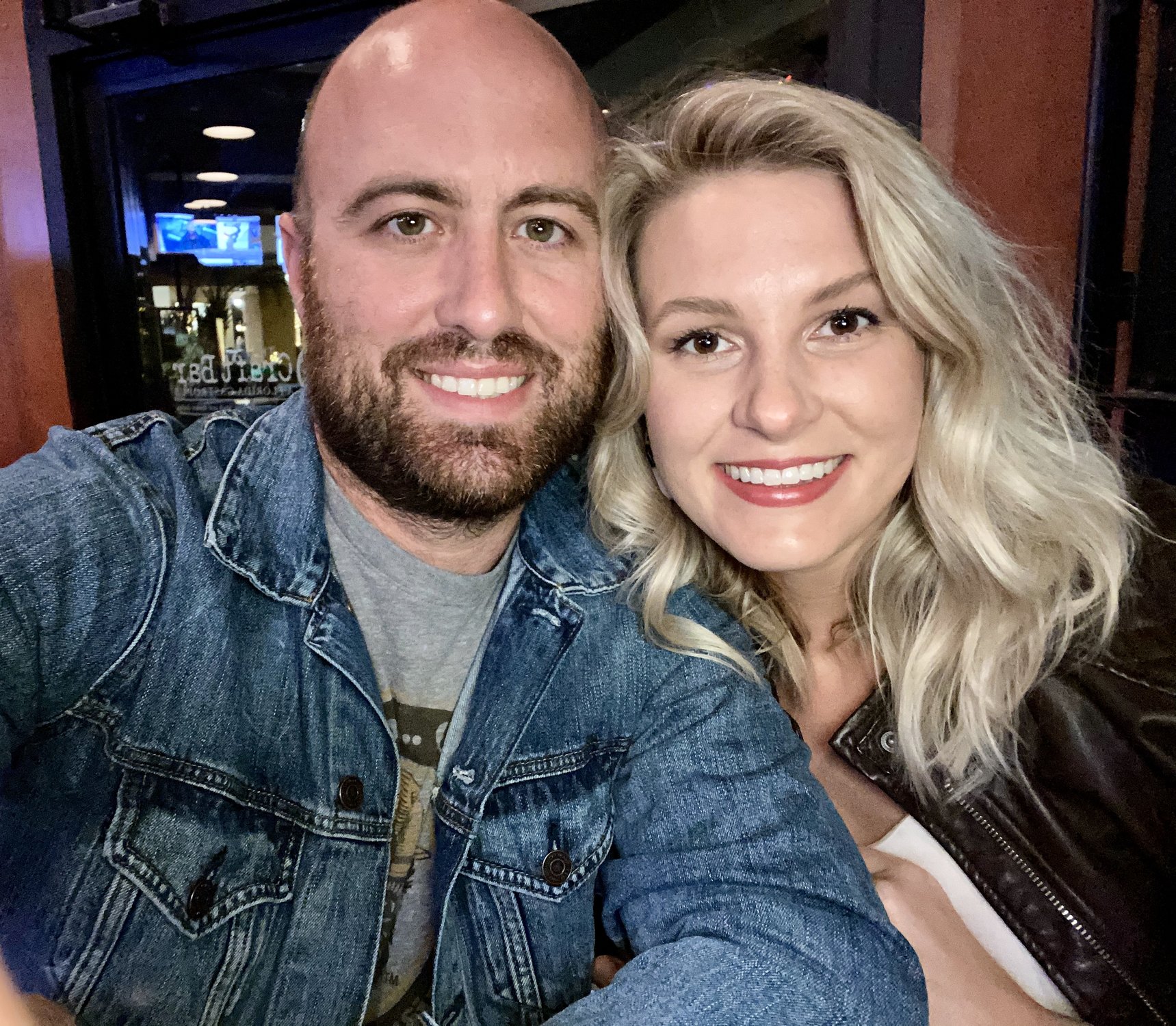
Special Forces Warrant Officer 1 John Wirka and Erica Wirka. Photo courtesy of Erica Wirka.
Addiction and the Road to Recovery
In the wake of her husband’s death, Wirka found her way to a program within the Army’s special operations world that is revamping how soldiers in the Army’s most elite units — and their families — deal with mental health and ideations of suicide within the ranks. It differs in its approach to both prevention and reaching those affected, like Wirka.
In September 2022, the Army Special Operations Command’s Suicide Prevention Program adopted a new policy incorporating the tenets of the “interpersonal theory of suicide,” based on the research of Florida psychologist and suicide expert Dr. Thomas Joiner.
Joiner’s work has found that suicide risk grows when individuals feel a lack of belongingness and perceived burdensomeness and also develop acquired capability, according to program manager Georgia Harrison.
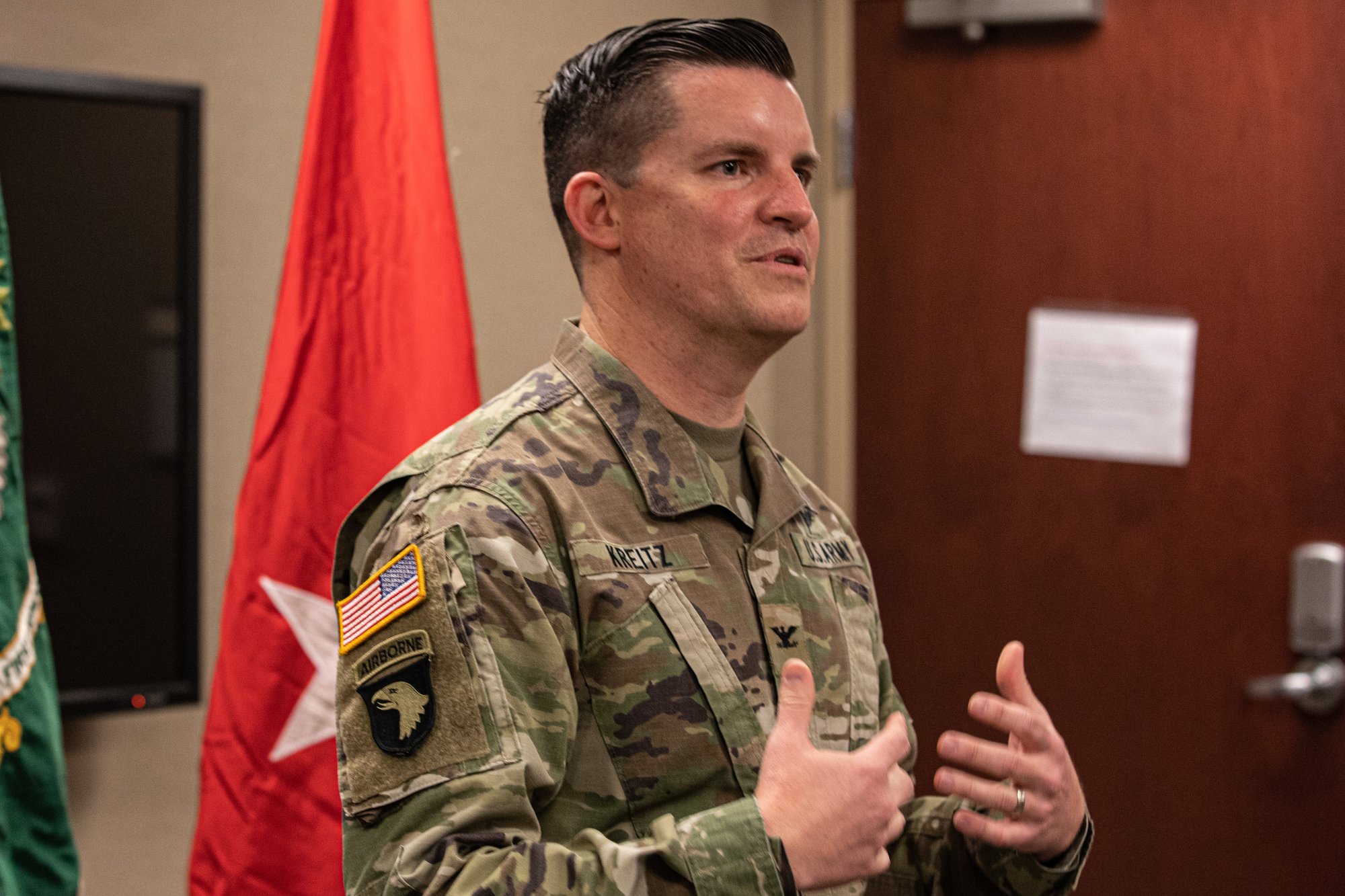
After abusing alcohol to the point of being hospitalized, Lt. Col. Eric Kreitz, a Green Beret, tells soldiers there is hope after crisis. “It was that vulnerability that I really lacked. And, it’s my hope now that this vulnerability — this honesty with myself — can provide hope to other people,” Kreitz said. “There is life after crisis. There’s a chance to continue on with your career.” Photo courtesy of Eric Kreitz.
To attack each of those causes, Harrison said, the new approach enables “tribes” within the Army’s special operations world to tailor their approach. What works for soldiers in the 75th Ranger Regiment, for example, may not be the best approach for Green Berets in 3rd Special Forces Group, Harrison said.
“[The theory] gives a level of flexibility to the commands so that we can have a theory-based research fact structure, that they have that flexibility to be able to take local resources and their different cultures into account to truly get at what matters to them,” Harrison said.
But it’s not an easy task. Though unit-level suicide rates are hard to come by, according to Defense One, 18 soldiers assigned to USASOC committed suicide in 2022. That’s higher than the previous two years and the third year of a troubling rise, over 12 in 2018 and six in 2017.
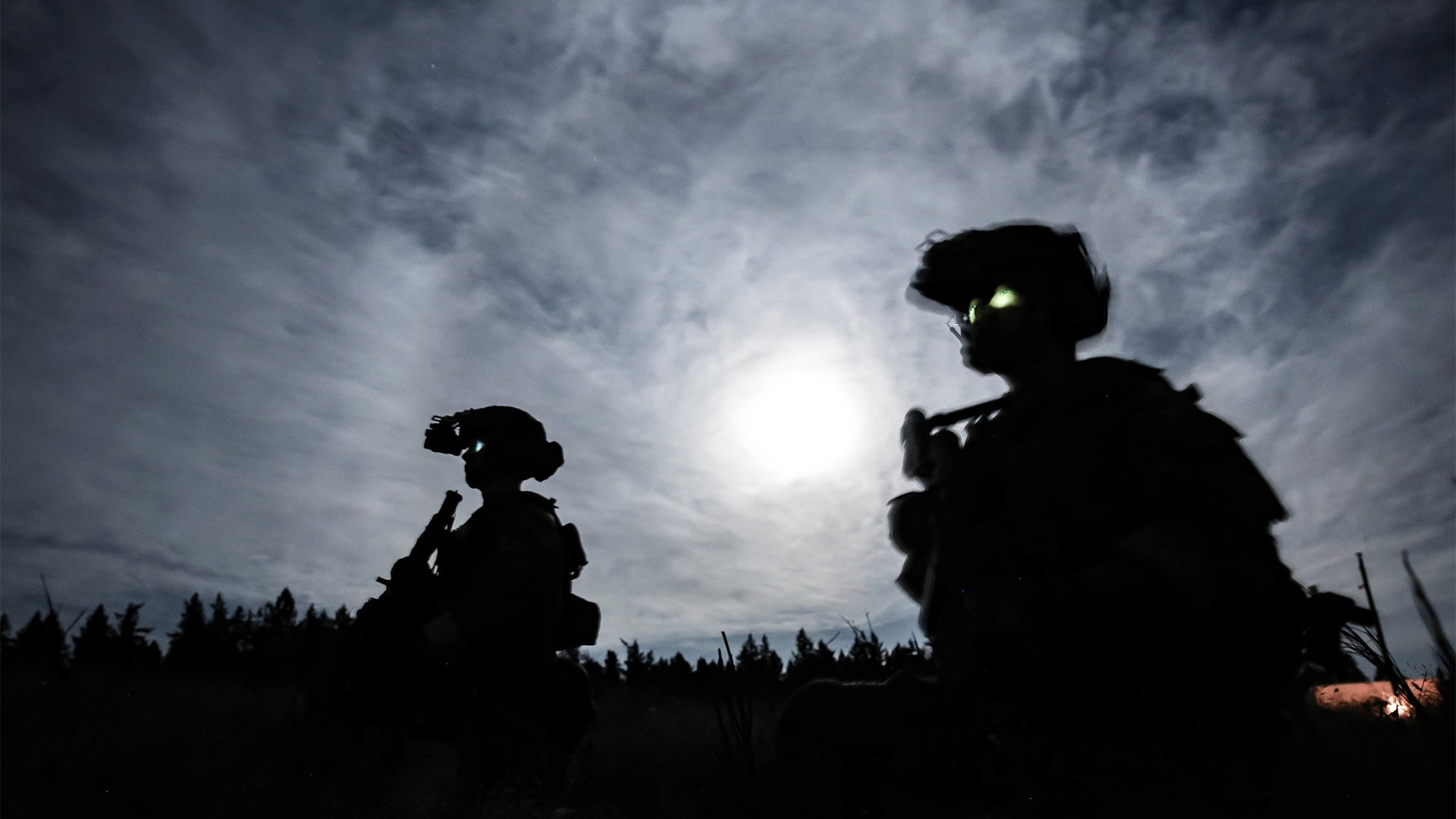
Army Rangers wearing night vision devices. USASOC’s suicide prevention program, which is part of the Human Performance and Wellness program, extends to Special Forces units, the 75th Ranger Regiment, and other units within the command. Department of Defense photo.
When suicides happen, units are required to conduct psychological autopsies as part of an Army-wide requirement. The forensic investigation explores what happened during a soldier’s suicide, what elements played into it, the method of suicide, and several other factors.
“I think one thing that is proven to be by looking at these things over the years is that each one of these events is very, very individualized,” says Jeff Wright, deputy director of USASOC’s Human Performance and Wellness program. “There are things that are going on in those people’s lives that are distinctly different from others.”
According to Maj. Gen. Patrick Roberson, USASOC deputy commander, mental health and risk for suicide in the military is at the top of leadership’s priorities across all of the Army’s special operations forces.
“It’s not something that we can change overnight because these are cultures that you’re trying to change,” Roberson said. “[We have] a lot of great folks, very hard-charging folks. A lot of them have volunteered three, four times to do what they’re doing out there. So we take special care, and taking care of our people is the first SOF truth: People are more important than hardware.”
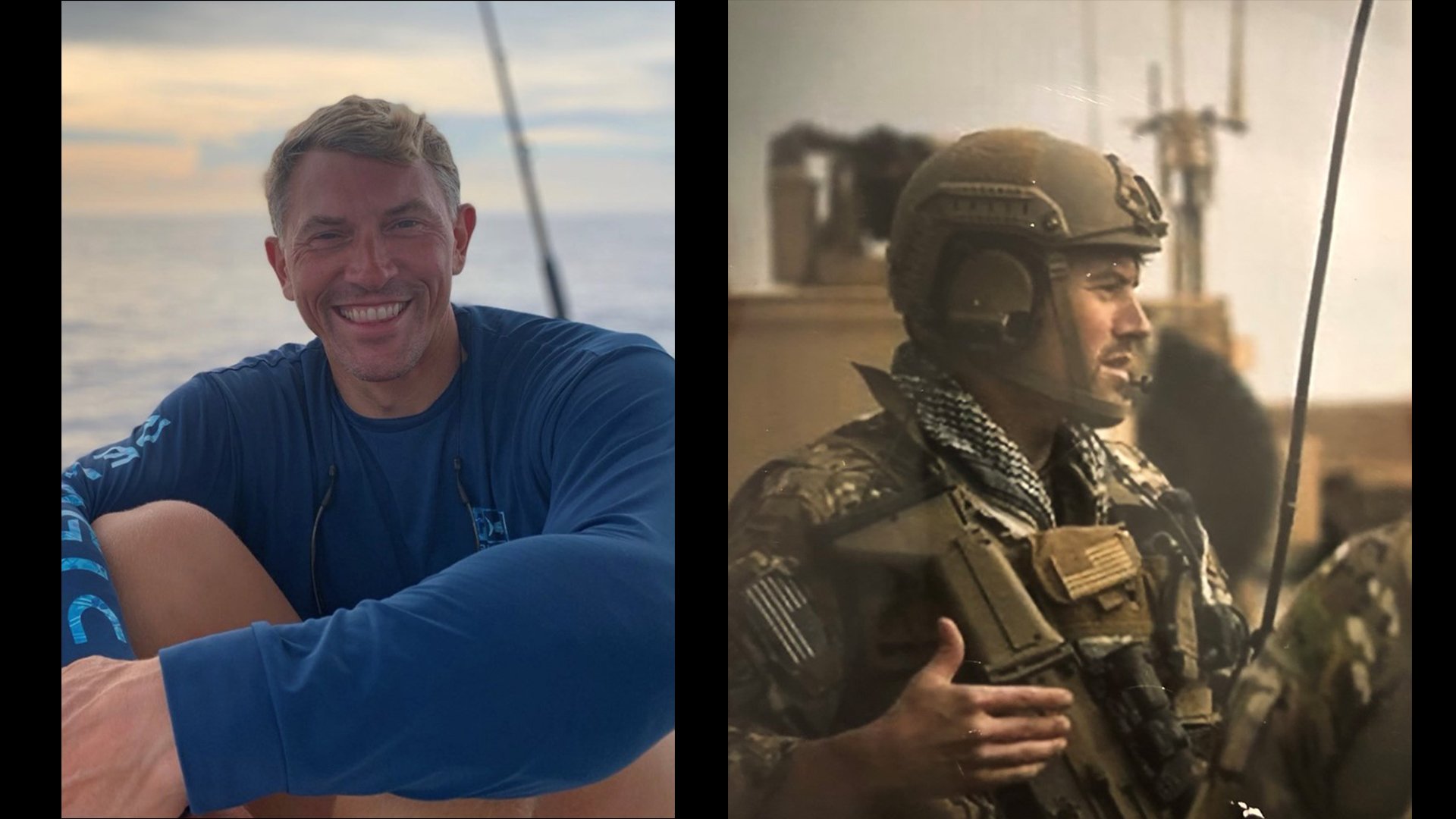
Master Sgt. Trevor Beaman was a high-performing Special Forces soldier, earning a master’s degree and serving as an instructor at the Special Forces dive school in Key West, Florida. But childhood trauma and job stress led him to addiction and suicide attempts. “Being vulnerable didn’t take away anything about me being an operator or a warrior. It did the opposite,” he said. “It really enhanced me to be a better thinker and a better provider in the unit that I was in.” Photos courtesy of Trevor Beaman.
A Short Deployment Turned Tragic
As a teacher, Erica Wirka was busy with her class throughout the morning of Jan. 14, 2021, but managed to check her email over lunch. Wirka read a message from her husband in pure disbelief.
Johnny said in the email that he would kill himself and did not want to be remembered. She reached his chain of command within 20 minutes of receiving the email but could not get in touch with Johnny.
He committed suicide before anyone could intervene.
“Because he was in El Salvador, I felt I was completely helpless,” Wirka said. “I couldn’t just get in my car and drive to try to find him. I texted and called hundreds of times, to no avail, to reach him.”
Within hours, the senior soldiers were knocking on her door.
“That was just, that was the most soul-crushing moment of my life,” Wirka said. “Johnny was really one you would never see this happening. It was just — it was so surreal.”
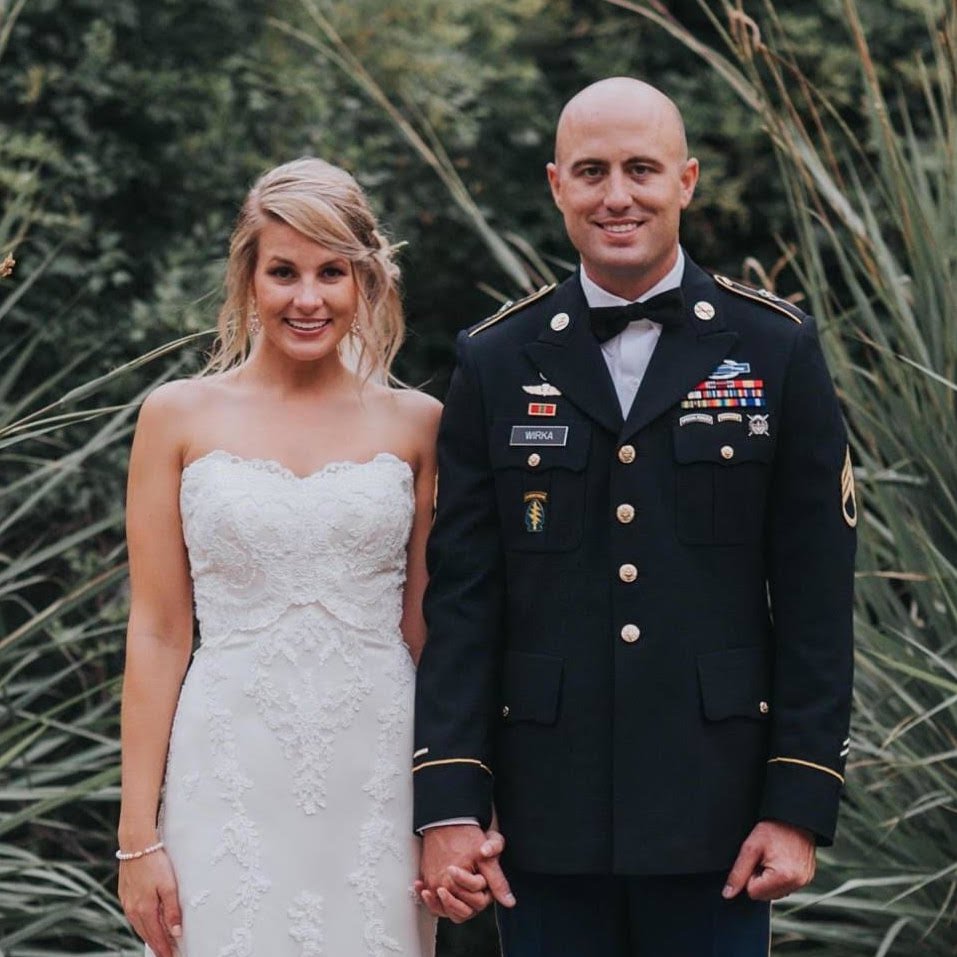
John and Erica Wirka. Photo courtesy of Erica Wirka.
Wirka recently began sharing her story about her husband’s suicide to spread the word of USASOC’s new focus on suicide in the ranks.
“It’s hard to be vulnerable and to admit you need help,” Wirka said. “But within that vulnerability, there’s strength. This narrative that being vulnerable is a weakness — I really try to encourage people that it’s not a weakness, it is strength.”
Sharing their stories along with Wirka were one active-duty Green Beret and a lieutenant colonel assigned to USASOC. Both have taken up roles as spokesmen to reach their fellow special operators. Lt. Col. Eric Kreitz and Master Sgt. Trevor Beaman both have experience with trauma, addiction, suicidal thoughts, and suicide attempts.
Kreitz said he held himself to such a high standard that he failed to realize how bad his mental health was. But after nearly taking his own life after drinking to the point of blackout, he was hospitalized. That forced him to be vulnerable for the first time in his life.
“It was that vulnerability that I really lacked. And, it’s my hope now that this vulnerability — this honesty with myself — can provide hope to other people,” Kreitz said. “There is life after crisis. There’s a chance to continue on with your career.”
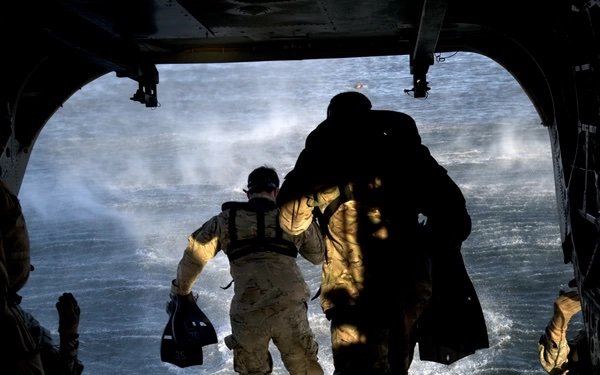
Special Forces operators leap from the rear of a helicopter for maritime infiltration training. DOD photo.
Beaman is currently assigned to the 7th Special Forces Group and, on the surface, is the ideal example of what a soldier can accomplish.
Initially assigned to 3rd Special Forces Group, he saw combat on deployments to Afghanistan and Africa. At home, Beaman earned his master’s in strategic studies in 2015 and became an instructor at the famed Special Forces Dive School in Key West, Florida.
But as his career evolved, he began using alcohol and prescription drugs to bury the pain he was feeling from the physical toll of the job and mental trauma from his childhood. As a child, Beaman said, he was sexually assaulted for six years, beginning when he was 8.
Even as he grew into a high performer and special operator in the military, he was self-destructing, attempting suicide several times.
It was only when his wife and fellow soldiers reached out to him that he found his way to the Army resources and — vitally — realized that seeking help would not harm his career.
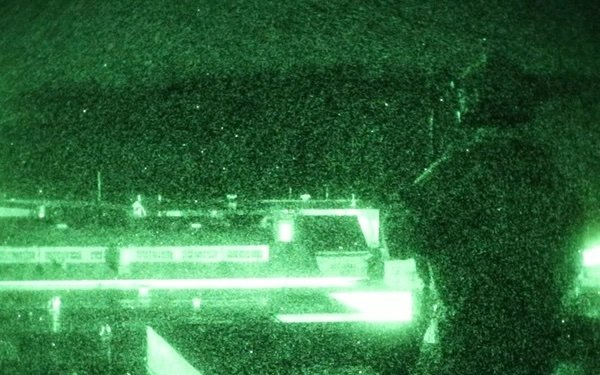
Maj. Gen. Patrick Roberson, USASOC deputy commander, says mental health and risk for suicide in the military are at the top of leadership’s priorities. “[We have] a lot of great folks, very hard-charging folks. A lot of them have volunteered three, four times to do what they’re doing out there,” Roberson said. “So we take special care, and taking care of our people is the first SOF truth: People are more important than hardware.” DOD photo.
He likened the treatment for mental health to the way physical injuries are treated and said his teammates never treated him differently. Beaman said seeking treatment for mental health ailments didn’t make him weak.
“Being vulnerable didn’t take away anything about me being an operator or a warrior. It did the opposite,” Beaman said. “It really enhanced me to be a better thinker and a better provider in the unit that I was in.”
Roberson, the USASOC commander, said breaking through the stigma of seeking help is a primary issue. SOF soldiers, he said, will avoid the doctor for physical injuries because they don’t want to “get benched,” an attitude that is even harder to break for mental interventions.
In fact, reaching out for help is now part of the high standards of SOF soldiers. Roberson said each unit’s schoolhouse has psychologists available to the students and encourages them to seek out those resources.
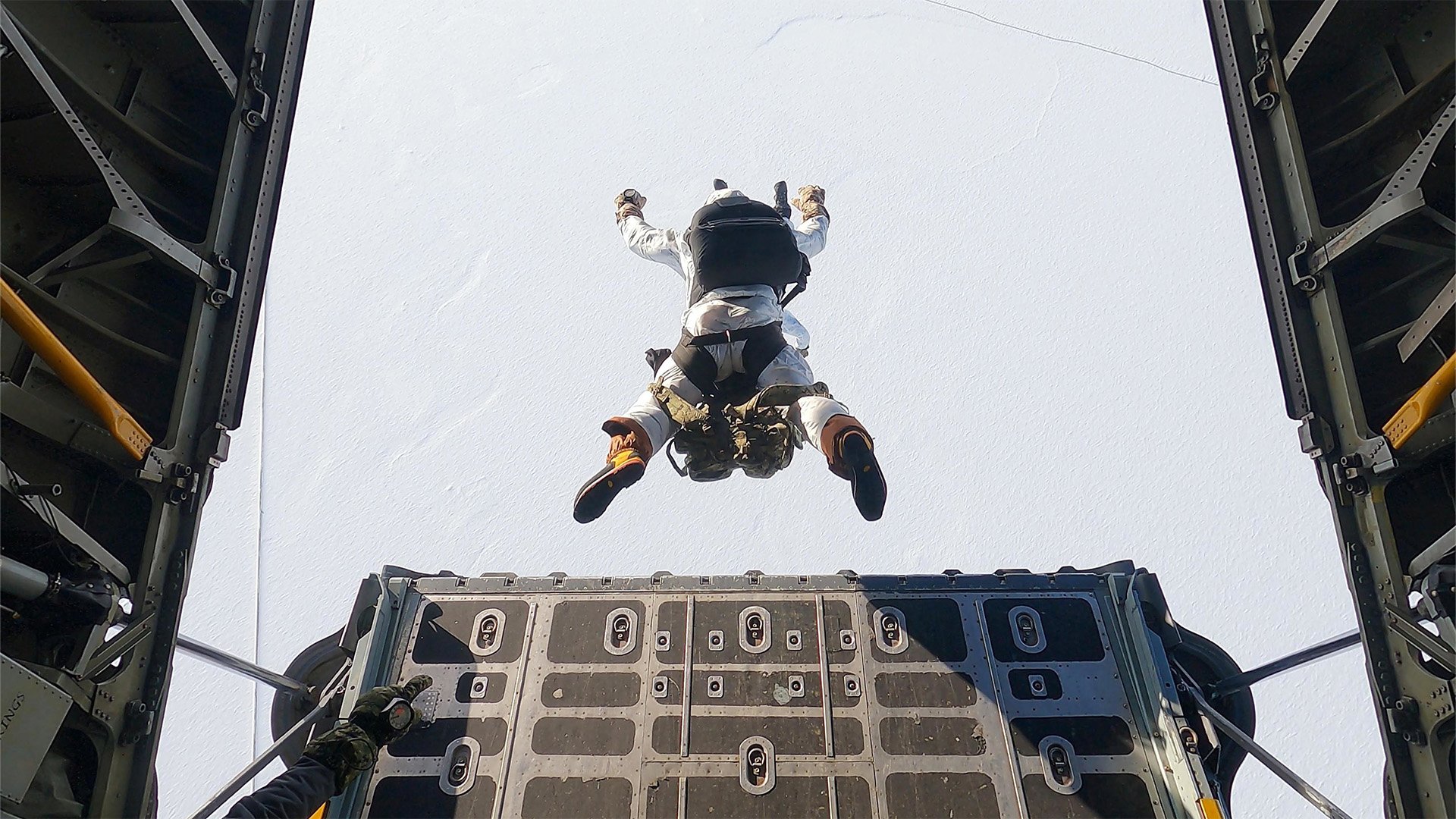
A special operations soldier leaps into a HALO jump over an Arctic-like landscape. DOD photo.
Human Performance and Wellness Program
Wright, the program’s deputy director, said while each branch of SOF runs its own program, early detection is a major part of suicide prevention.
It could be something as basic as noticing a soldier with low energy or performance during a morning workout.
“There’s a pretty good chance that that performance coach is going to stop me at an appropriate time, try to inquire about that decrement of focus or that decrement of energy applied to that workout,” Wright said.
Based on how the inquiry is answered, the coach will recommend that a soldier speak with one of the on-staff cognitive performance coaches, physical therapists, or whoever is a good fit for the problem causing the soldier’s falloff in performance.
Symptoms of a service member struggling with mental health could be as simple as an overtraining injury or as complex as excessive alcohol use.
“Having a top-down approach wouldn’t really get to the heart of the matter,” said Harrison, the command’s program manager. “But being able to have that grassroots approach, hearing from the commands, hearing from the members, that’s really what’s going to drive the basis of the programs.”
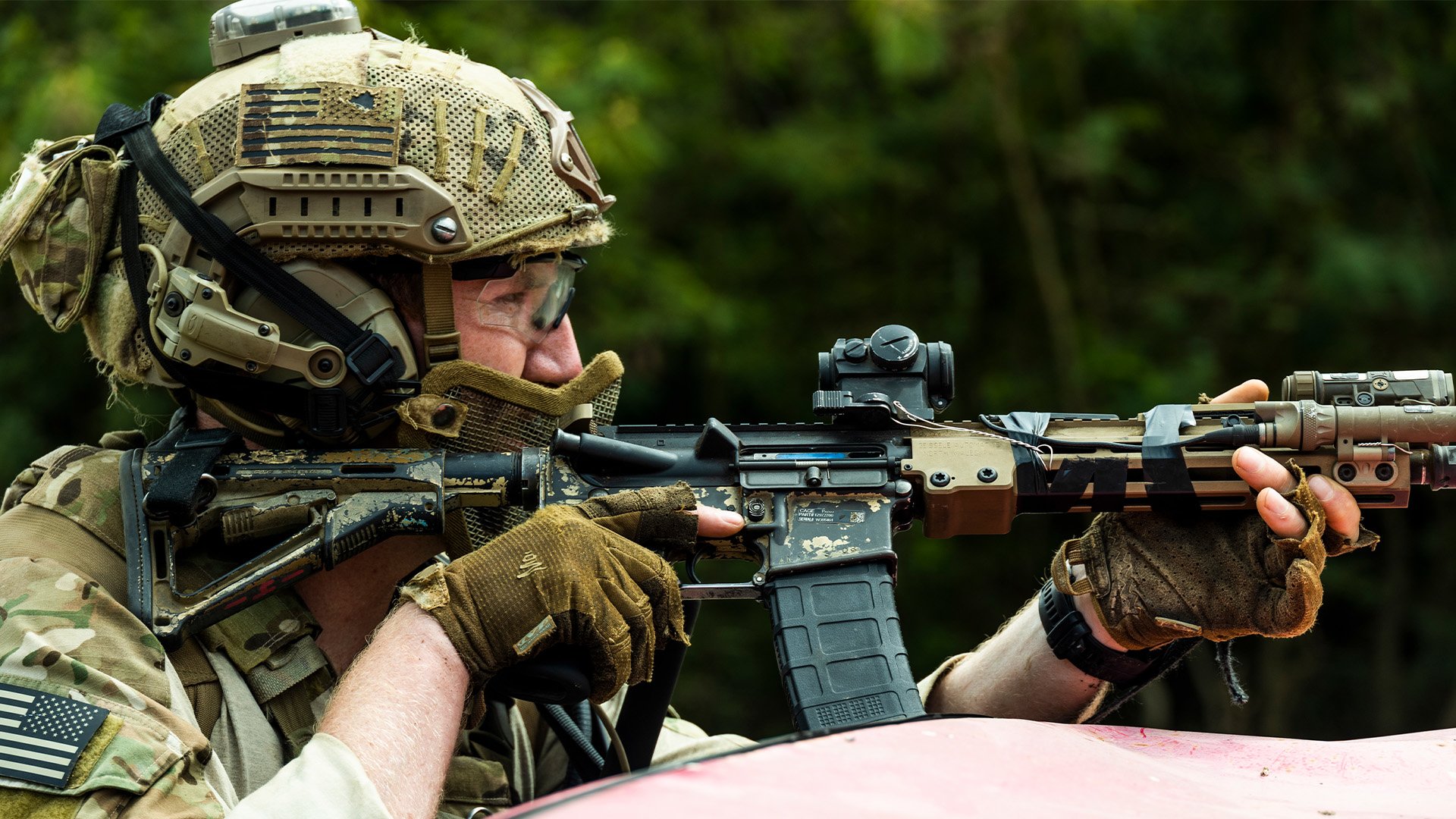
An Army Ranger. DOD photo.
Capability and Firearms
A key factor addressed in Joiner’s interpersonal theory is acquired capability, including an individual’s desensitization to pain and to the fear of death. And a related element is firearms control — Roberson said a large percentage of suicides were a result of access to a firearm.
He encourages safe storage of firearms when they aren’t being used and said the 75th Ranger Regiment was quick to enact rules that keep guns out of barracks.
With those rules, soldiers don’t have guns readily accessible when they may fall into a bout of depression or face other mental or behavioral health issues. For soldiers not living in the barracks, it comes down to a personal choice. Beaman does not keep firearms in his home to proactively prevent himself from pulling the trigger on himself.
Collecting and measuring data is also essential to the success of this new approach. Gathering data has been difficult due to the clandestine nature of USASOC and its different mission sets, and the data that was collected wasn’t reaching the right people.
SOCOM uses a program called Smartabase that helps track data while maintaining privacy. Officials also emphasize using “wearables,” a technology like Fitbit, Whoop bracelets, or even an Apple Watch.
“I think one of our biggest impediments to progress has been kind of a stovepiping of a lot of this information, and we’ve done a better job,” Roberson said.
Read Next: ‘It Made No Sense’: Military Academies To Stop Kicking Parents Out of School
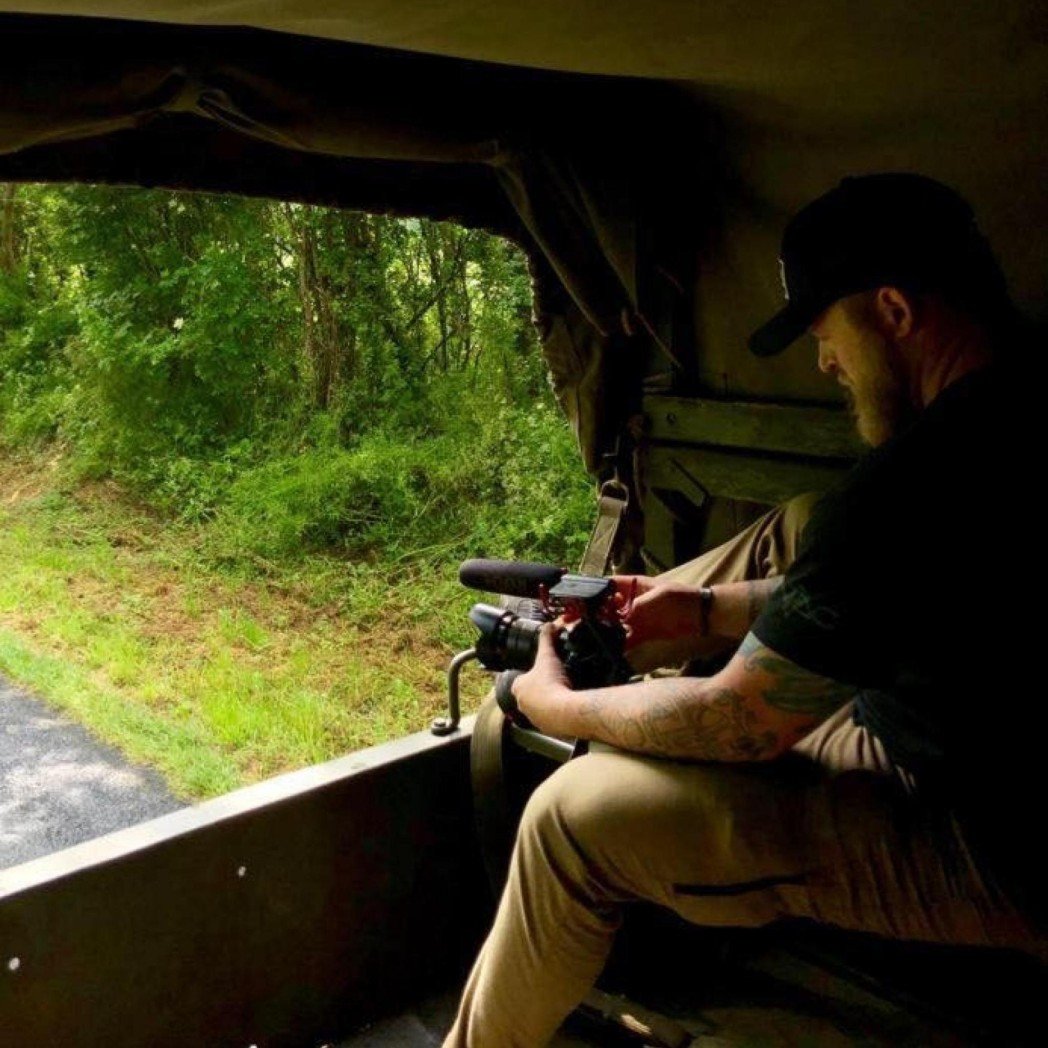
Joshua Skovlund is a former staff writer for Coffee or Die. He covered the 75th anniversary of D-Day in France, multinational military exercises in Germany, and civil unrest during the 2020 riots in Minneapolis. Born and raised in small-town South Dakota, he grew up playing football and soccer before serving as a forward observer in the US Army. After leaving the service, he worked as a personal trainer while earning his paramedic license. After five years as in paramedicine, he transitioned to a career in multimedia journalism. Joshua is married with two children.
BRCC and Bad Moon Print Press team up for an exclusive, limited-edition T-shirt design!
BRCC partners with Team Room Design for an exclusive T-shirt release!
Thirty Seconds Out has partnered with BRCC for an exclusive shirt design invoking the God of Winter.
Lucas O'Hara of Grizzly Forge has teamed up with BRCC for a badass, exclusive Shirt Club T-shirt design featuring his most popular knife and tiomahawk.
Coffee or Die sits down with one of the graphic designers behind Black Rifle Coffee's signature look and vibe.
Biden will award the Medal of Honor to a Vietnam War Army helicopter pilot who risked his life to save a reconnaissance team from almost certain death.
Ever wonder how much Jack Mandaville would f*ck sh*t up if he went back in time? The American Revolution didn't even see him coming.
A nearly 200-year-old West Point time capsule that at first appeared to yield little more than dust contains hidden treasure, the US Military Academy said.












